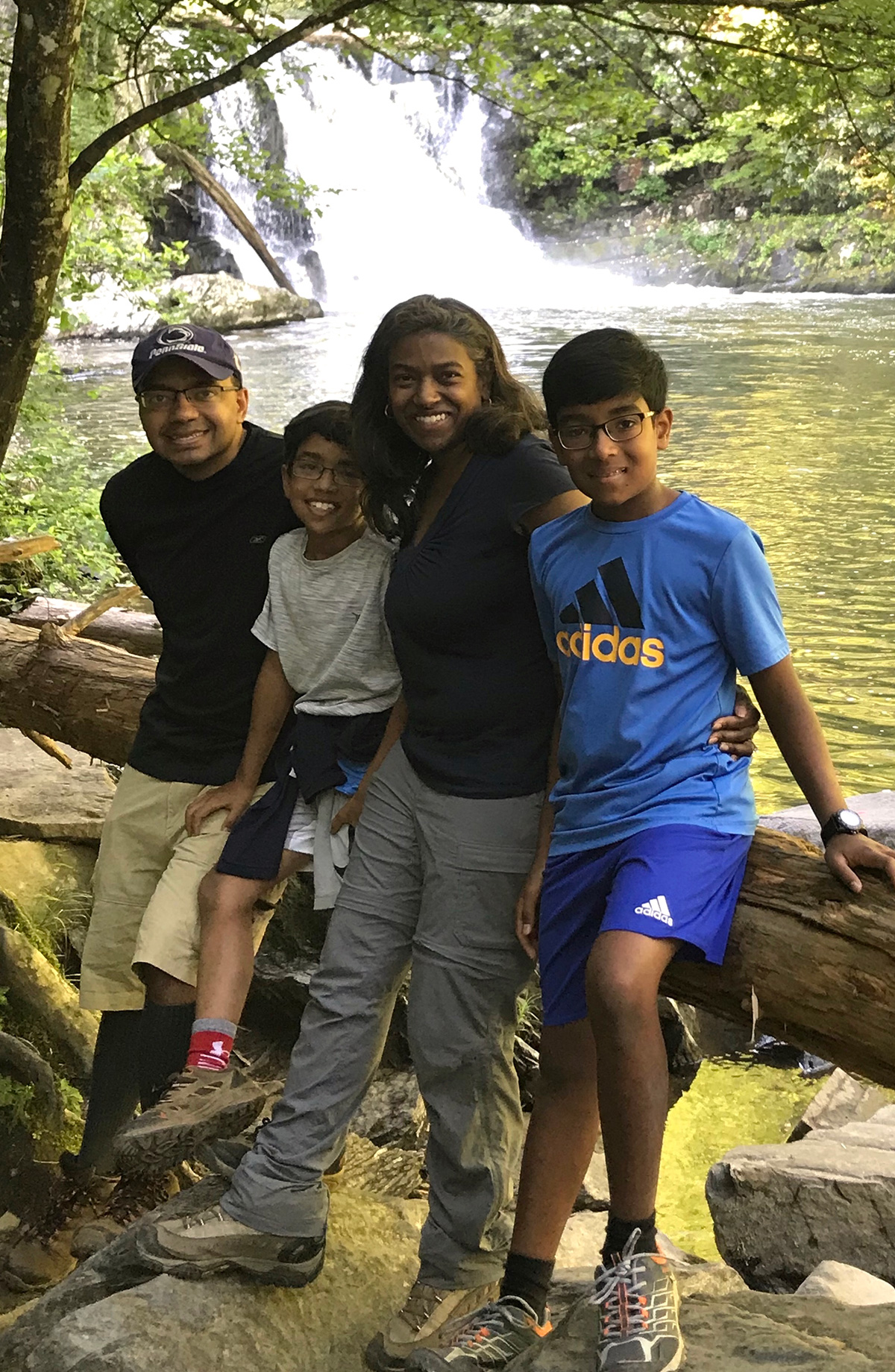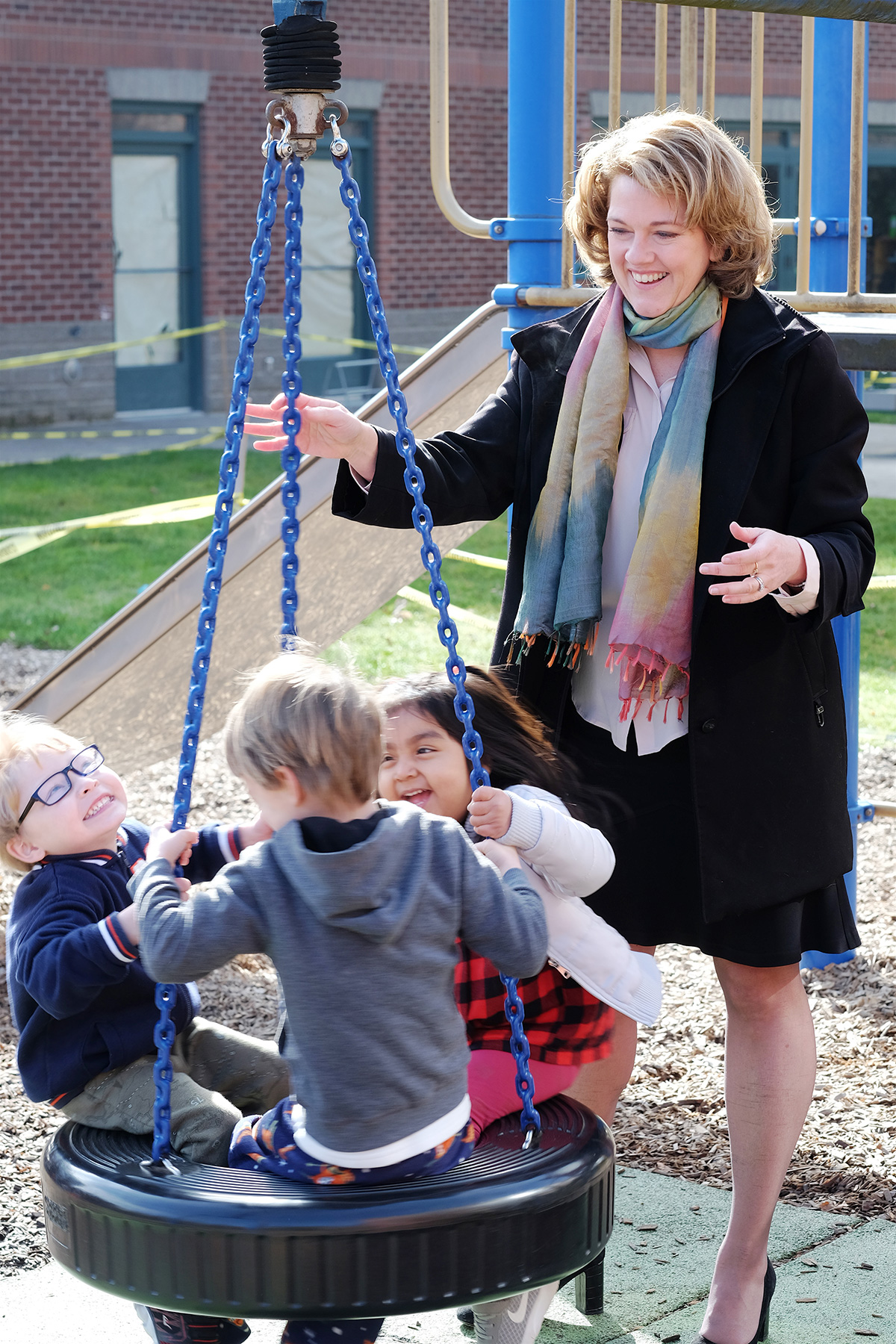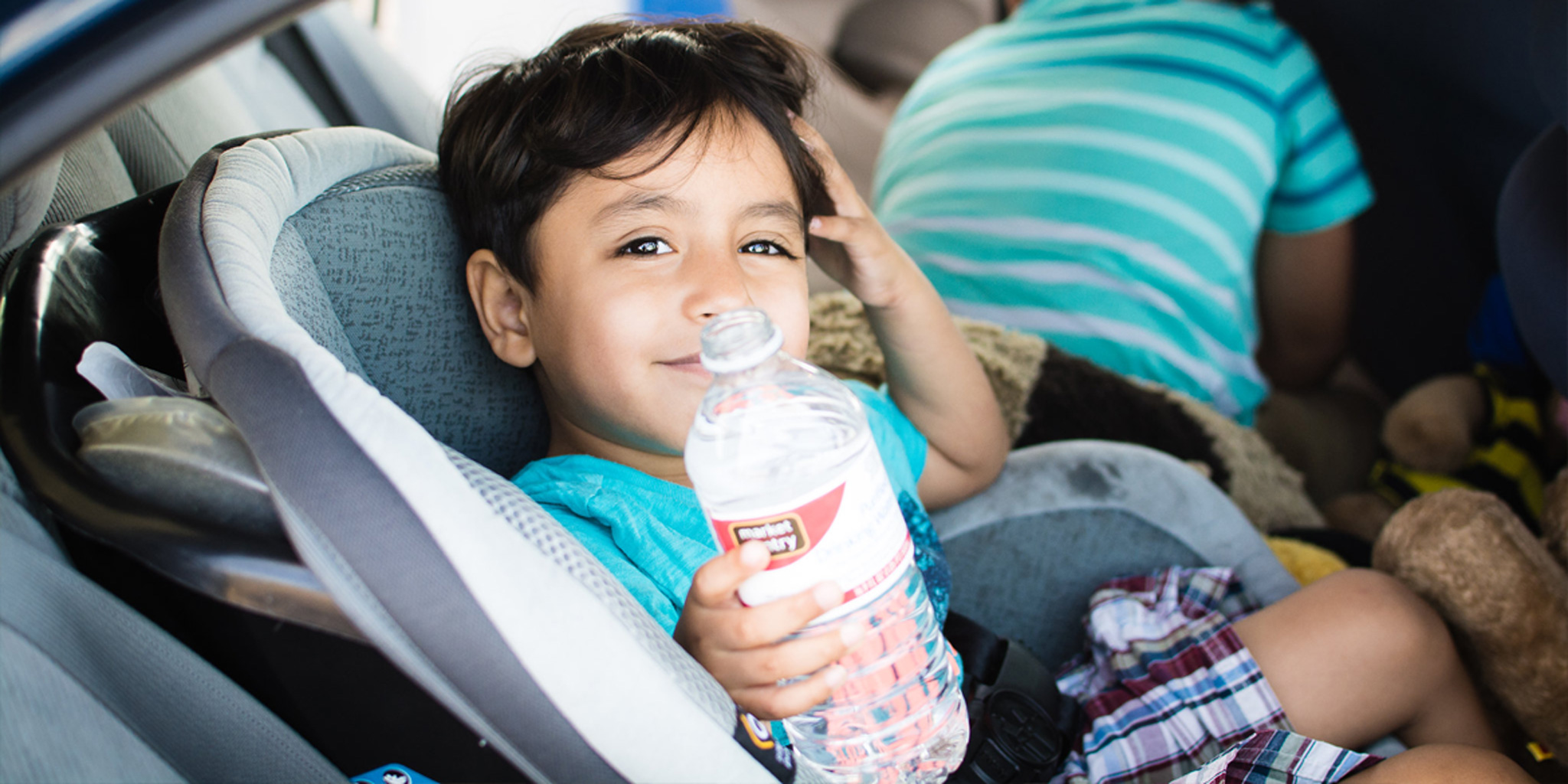Summer travel is a whole other thing when you’re a parent of young children. The rest and relaxation you’ve been craving? Well, that’s in jeopardy now that you’ve become responsible for little people who’ve become attached to their daily routines. At the same time, long car trips and other trappings of the summer months bring opportunities for building brains and lifelong memories.
To find out how to get the most from summer travel, I spoke to two experts.
Dr. Geetha Ramani, director of University of Maryland’s Early Childhood Interaction Lab, studies early math development, play and family math engagement. She’s also the mother of two boys who just survived an eight-hour car trip to the Great Smoky Mountains. Dr. Megan McClelland, director of Oregon State University’s Hallie E. Ford Center for Healthy Children & Families, also recently returned from a family vacation. They offered these pointers:
-

Dr. Geetha Ramani with family Talk about What You See. Regardless of your mode of transportation, travel affords opportunities to view the world as it passes by, through consideration of colors, shapes, and numbers. Conversations that begin with “I spy with my little eye…” not only keep children occupied. They can help them process new experiences. Ramani also recommends talking about what you will see in a new place, on the beach, or wherever you’re going. “Decontextualized speech, which takes you beyond the here and now, reflects an advanced stage of language development,” she says.
- Something Old, Something New. Children like having an old standby with them when they go somewhere new, so absolutely positively don’t forget that beloved plush toy as well a favorite book or three. Novelty is also exciting and doesn’t have to be expensive. You can find treasures at the dollar store or even make games yourself if you’re feeling crafty. Dr. Ramani notes that taking things out of a box and putting them back in can develop small motor skills. (Pro tip: magnets minimize the amount of dropped stuff.) Dr. McClelland recommends Etch-a-Sketch, Play-Doh in a Ziploc bag and travel puzzles.
- Give Them Choices. “Parenting involves spoken and unspoken rules,” says Dr. McClelland. ”Some of those rules go out the window when you’re on the road.” Letting a child decide whether to stop in ten minutes or twenty allows them to feel some agency in the course of an experience where so much is beyond their control. Parents can also enlist children in keeping the family on schedule—or some semblance of a schedule.
- Use the Breaks. Before kids, you might have been able to power through an eight-hour drive with two or three bathroom breaks. Those days are over. Think of the breaks as a part of trip. Use the time to hold a relay race or other physical activity. You might find healthier dining options if you venture beyond the rest stop.
-

Dr. Megan McClelland hits the playground Take It Easy on Yourself. McClelland admits that while she considers herself an expert on child development, parenting is a humbling experience. Not all children behave according to the textbook. And what succeeds one day might fail the next. She says she’s learned to go with the flow, especially after her second child made her rethink what she thought she knew about temperament.
- Be Open about Feelings. If you’re willing to share that you, too, are tired or stressed, your child will see you articulating those authentic feelings. That’s an important behavior to model. At the same time, you don’t want your kids to get the sense that you’re not in control of the situation. They’re counting on you.
- Save the Tech for Last. Travel and technology go together like Green Eggs and Ham, but overreliance on games and movies can rob you of the joys of experiencing new places as a family—and talking about them. Dr. McClelland notes that delaying the gratification of the screen helps to promote self-regulation in kids. (In adults too! –ed) “Think of ten-minute games or a thirty-minute show as a reward or something to look forward to” suggests Dr. Ramani. Tracking time is also a skill to work on. What does ten minutes feel like?
Note to readers: What are your top tips for traveling with children on trains, planes, ferries and automobiles? Let us know on Twitter and Facebook!
Resources:
Video: Geetha Ramani: You want to Teach Math? Play Games! (An Early Learning Nation Studio production recorded at the 2018 Ready Nation Global Business Summit on Early Childhood)
Video: Megan McClelland: The Skills and Tools of Self-Regulation (An Early Learning Nation Studio production recorded at the 2019 Society for Research in Child Development Biennial Meeting)

Mark Swartz
Mark Swartz writes about efforts to improve early care and education as well as developments in the U.S. care economy. He lives in Maryland.



